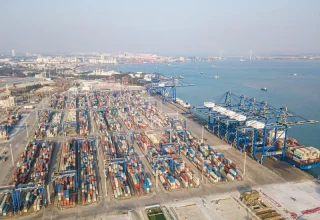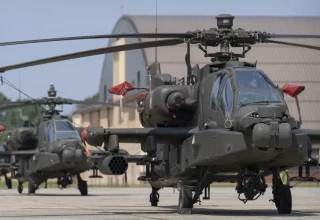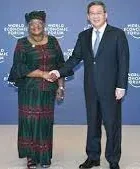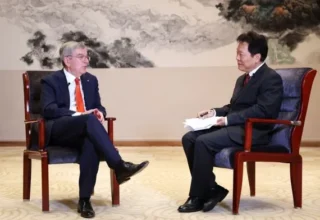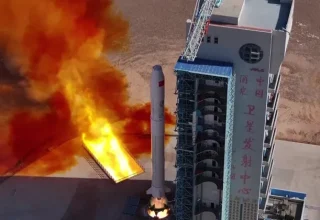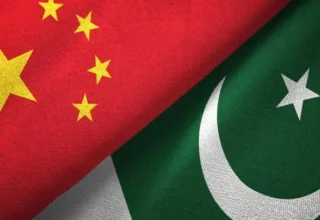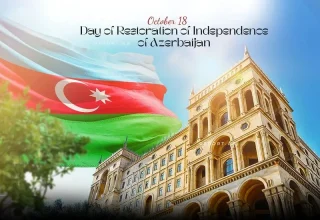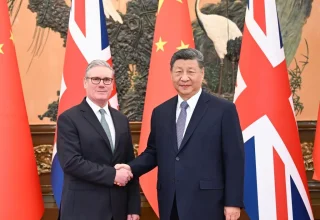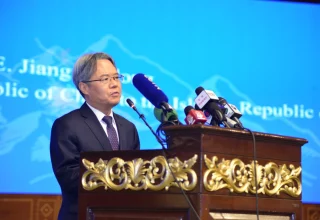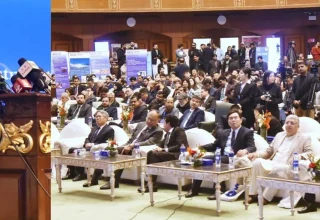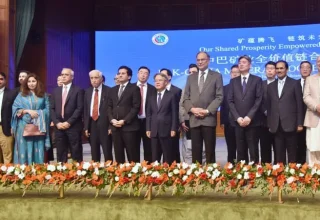
It seems that China’s BRI has supported the formation of various Middle Corridors (MCs) in Central Asia, Asia, Africa, Latin America and around the globe, promoting greater trans-regional connectivity, qualitative industrial cooperation, quality development, modernization, digitalization, green transformation, AI and last but not least, hybrid agriculture.
Thus geo-economics of the MCs is reshaping the nature, scope and utility of the socio-economic integration and geopolitics of many regions through creating numerous befitting propositions for all.
Ongoing trade & tariffs war, sanctions, unilateralism, economic protectionism have become a launching pad for “America Again Doctrine”, prevailing fear, uncertainty and chaos in the Middle East despite Gaza Peace Deal and ongoing Russia-Ukraine Conflict have forced countries, communities and enterprises to readjust their economic, trade, investment, exports and international engagement priorities making their economies more resilient and efficient logistics solutions.
Hence BRI provides sustainable alternative solutions to burning issues of the globe through creating win-win situations and facilitating the true essence of multiculturalism.
Additionally, emerging walls & wonders of geopolitics, rising maritime costs, decline to regional & global blue economy and growing demand and marketing space for alternative transport corridors have highlighted the strategic importance of overland routes linking Asia and Europe.
Obviously, the launch of a new multimodal container route from Kashgar, China, to Azerbaijan via Kyrgyzstan, Uzbekistan, and Turkmenistan represents more than a regional infrastructure project vividly reflecting a broader Eurasian push toward connectivity, economic diversification, and financial & business integration. So it has become a new chapter in the trans-regional connectivity in the region surpassing all geographic hurdles for achieving a prosperous region in the days to come.
According to official data, the first convoy departed Kashgar on October 15, 2025 with shipments expected to reach Uzbekistan by October 21 and Turkmenistan by October 24, before continuing toward Azerbaijan and the Caspian region.
Definitely, beyond moving goods, the MCs represents a strategic realignment in Eurasian logistics domain offering an alternative to the traditional Northern Route while strengthening trade flows across Central Asia which would also be beneficial for the further expansion of BRI in the region.
It seems that coordinated efforts of all regional leaders of greater regional connectivity and economic integration are now paying-off. Hopefully it would further diversify transport chains and improve rail connectivity, the initiative positions the MCs as a crucial artery for trade between China, Europe, and beyond. It also opens new pathways to South Asia and the Middle East, demonstrating the corridor’s potential to reshape regional commerce and investment flows. Thus it is a strategic value addition in the trans-regional connectivity in the region connecting countries and companies alike.
According to the World Bank, Asian Development Bank, and European Commission, freight volumes along the MCs have increased nearly 90 percent since 2022, underscoring its rising strategic relevance. Moreover, traffic along the corridor could reach 10-11 million tons annually by 2030.
Interestingly, Azerbaijan has emerged as a central hub in this network, linking East and West as well as North and South. With the largest commercial Caspian fleet capable of handling up to 25 million tons per year, nine international airports, and the Baku-Tbilisi-Kars railway ensuring smooth logistics flows, the country has become an indispensable link in the evolving Eurasian transport ecosystem.
Additionally, Baku-Tbilisi-Kars railway is a vital component of the Trans-Caspian International Transport Route (the MCs), which forms a sustainable part of the BRI. Transit shipments along the MCs grew by 86 percent last year and increased 44 percent during January-July of this year.
Furthermore, its increasing economic and industrial partnership with China under the BRI has transformed it an ideal connecting hub.
Currently, 347 Chinese companies actively operate in Azerbaijan across sectors including industry, agriculture, transportation, construction, trade, and services. the country’s special economic zones, including the Alat Free Economic Zone and industrial parks, which offer excellent conditions for investment. Hence, the government’s active encouragement of private investments in key reconstruction regions such as Garabagh and the Eastern Zangazur Economic Region should be the way forward.
The BRI and Uzbekistan have emerged as new strategic partners in Central Asia, further strengthening trans-regional connectivity, trade, investment and economic ties. In 2024, both countries advanced this relationship into a new era of all-weather comprehensive strategic partnership. Uzbekistan’s geographic location is crucial, lying directly along China’s westward path toward Turkmenistan, a key supplier of natural gas. The Central Asia-China Pipeline passes through Uzbekistan, connecting Turkmenistan’s gas resources to China’s energy grid in the Xinjiang region.
Additionally, Uzbekistan’s proximity to the Caspian Sea makes it a viable MCs opening trade routes to the Persian Gulf and Black Sea ports. Hence China-BRI-Uzbekistan is expanding caravans of trade and connectivity in the region and beyond.
Noticeably, construction of the China-Kyrgyzstan-Uzbekistan railway is already underway, reflecting its strategic importance for Eurasia. Hopefully it could become the shortest route from China to Europe and the Middle East, cutting transport distances by approximately 900 kilometers and reducing delivery times by a week, offering significant economic benefits for participating countries.
Most recently, President Shavkat Mirziyoyev emphasized at the OTS summit in Gabala that linking the MCs with the China-Kyrgyzstan-Uzbekistan railway and eventually the Trans-Afghan corridor will create a multi-sector strategic transport network across the region.
In summary, the new middle corridor has great significance in the context of the BRI. Promoting infrastructure connectivity is central to the BRI. China and its partners are strengthening regional rail links through the China-Europe Railway Express and the development of the MCs, including the China-Kyrgyzstan-Uzbekistan route, creating a comprehensive and multidimensional transport network across Eurasia.
Interestingly, the international rating agency Moody’s, have highlighted that strengthening the MCs benefits not only its core economies Kazakhstan, Azerbaijan, and Georgia but also countries such as Uzbekistan and Kyrgyzstan, which gain from improved regional integration.
Manifestly, the Zangezur Corridor has been dubbed as a vital piece of a revitalized Silk Road. Thus commencement of new MCs will create new economic and transit opportunities for the participating countries.
It seems that Kashgar-originating MCs is more than a new shipping line signaling a sustainable transformation of Eurasian logistics. Hence the MCs is emerging as a strategic backbone for regional development.
Hopefully, by linking multiple countries through a unified, MCs it not only strengthens trade connectivity but also fosters economic resilience, investment opportunities, and deeper regional integration clearly demonstrating that connectivity initiatives today are shaping the commercial and geopolitical landscapes of tomorrow and BRI has become the biggest proponent of regional, trans-regional and global geo-economics.





